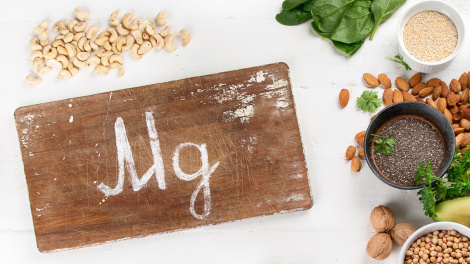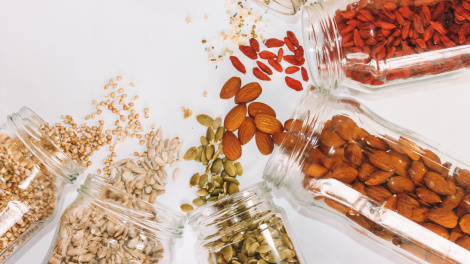Updated 2020
Sugar is one of the most loved and loathed ingredients out there – we can indulge in it, enjoy the pleasure it brings to the end of a meal, or revel in the sweet treat we know we shouldn’t have had. The problem with sugar is that it is also incredibly detrimental to our health. We know that sugar is bad and that we shouldn’t have so much of it, but the truth is that it's everywhere – even in places we don’t realise. But despite the fact that we know it has no nutritional value, it is incredibly hard to give up and eliminate from our diets. There’s a reason for that… We’re sure that you've seen all the headlines on “the truth about sugar,” but here’s a quick summary in case you missed them.
A sweet addiction
“Chocolate is better than sex”, and for some, this could be true - eating sugar triggers the same hormone to be released. Dopamine is the feel-good hormone triggered by various pleasure mechanisms, like sex, exercise and drugs. Sugar lies on the “bad” spectrum of our pleasure mechanisms and has been compared to heroin or cocaine in terms of its impact on your brain.
Over time, your brain gets used to high levels of sugar. This means that to get the same surge of energy or pleasure from the first sugar rush you ever had, you have to constantly consume more. It’s the same as a drug addiction. The more you have, the more you need to feel good.
There are two stages of sugar’s reaction in your brain. With the initial rush and spike in blood sugar levels, accompanied by a decent amount of dopamine and insulin – you feel great. Then come’s the crash. You feel tired and hungry and start looking for your next hit of sugar. At this stage, you are far less likely to make healthy choices. So, the cycle continues and your brain gets used to demanding sugar to function.
Have a look at the research conducted by Harvard’s Department of Neurobiology
How does sugar affect your body?
Okay, this is no secret or shocking discovery. Excess sugar consumption (even “good” sugar from fruit and other natural sources) leads to weight gain and puts you at risk for other health issues – especially diabetes and obesity-related heart disease. It has also been linked to accelerating the development of cancer cells.
The effect of sugar is evident in almost all societies in the 21st century. Go take a look at global obesity statistics and decline in nutritional value in the foods we eat. It’s clear as day that sugar presents a real problem to our health. Even the World Health Organisation has urged countries to manage sugar intake amongst adults and children.
Sugar could significantly speed up the ageing process.
How does sugar impact ageing, you ask? It's known to have an impact on something as simple as wrinkles all the way to having an influence on Alzheimer's development. It causes a spike in inflammation, putting strain on all our organs and interferes with collagen production in the skin.
A life without sugar. Is it even possible?
It certainly is, but it requires no small effort. Sugar is in almost everything we eat. Because we don’t realise it, it’s incredibly difficult to plan a sugar free diet. The food industry has become a master of disguise, giving new names and descriptions to what is essentially the same ingredient. Syrup, nectar, sweetener, raw, whatever the description, sugar is still sugar. And don’t be fooled by the natural sugar trend. Remember, sugar is sugar, and natural options only seem better, as they are less refined and probably not bleached.
We know sugar is in sweets, chocolates, sugar-sweetened beverages and other obvious indulgences. But it’s also in the foods and condiments most people consider a staple in their households. Ketchup, mayonnaise and salad dressings are incredibly high in added sugar. So are many of the foods we think are healthy, such as granola, “pure fruit” juices and flavoured yogurt are also jam-packed with unnecessary sugars.
The easiest way to tell if something is high in sugar is by looking at the label – if sugar is listed in the top 5 ingredients, it’s safe to assume it’s loaded. Treat these foods as treats. Have them once in a while when you feel like a little comfort food, or a sugary dopamine hit.
If you’re looking for a daily dose of the sweet stuff, consider cutting down on the refined sugar intake and stick to a juicy fruit to get your sugar fix – it’s still sugar, but in limited quantities, it’s also giving you some additional nutritional value, and it’s overall impact is tiny compared to the refined, added sugars that are everywhere!







Comments